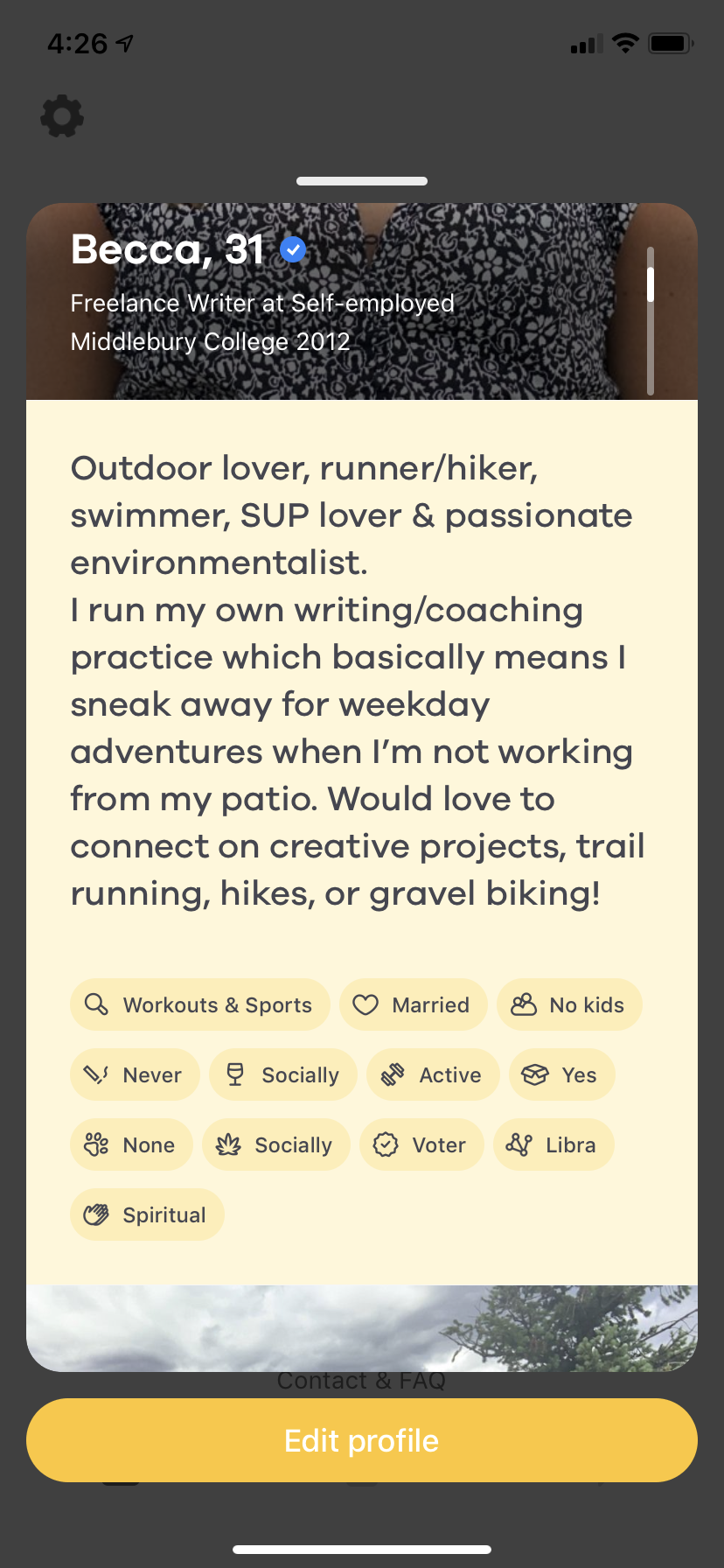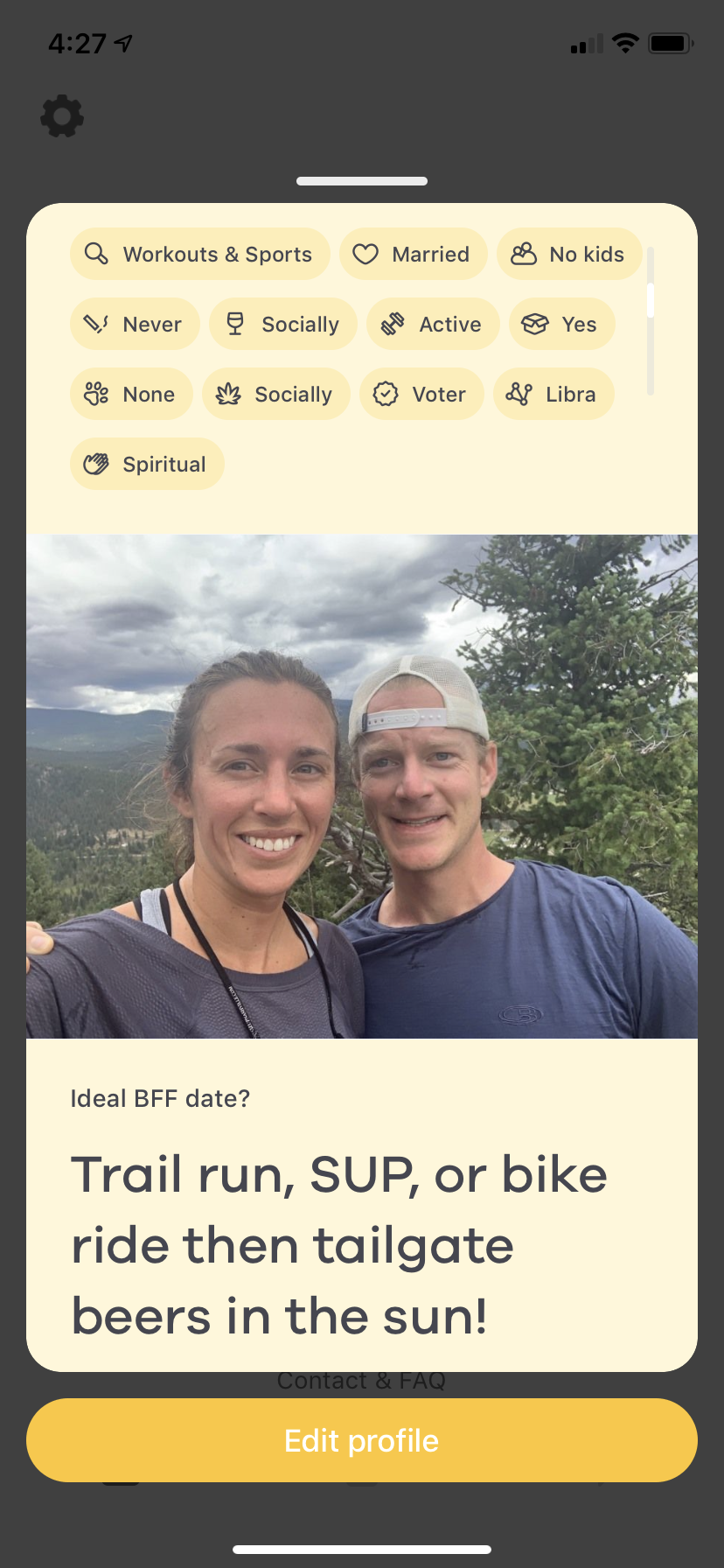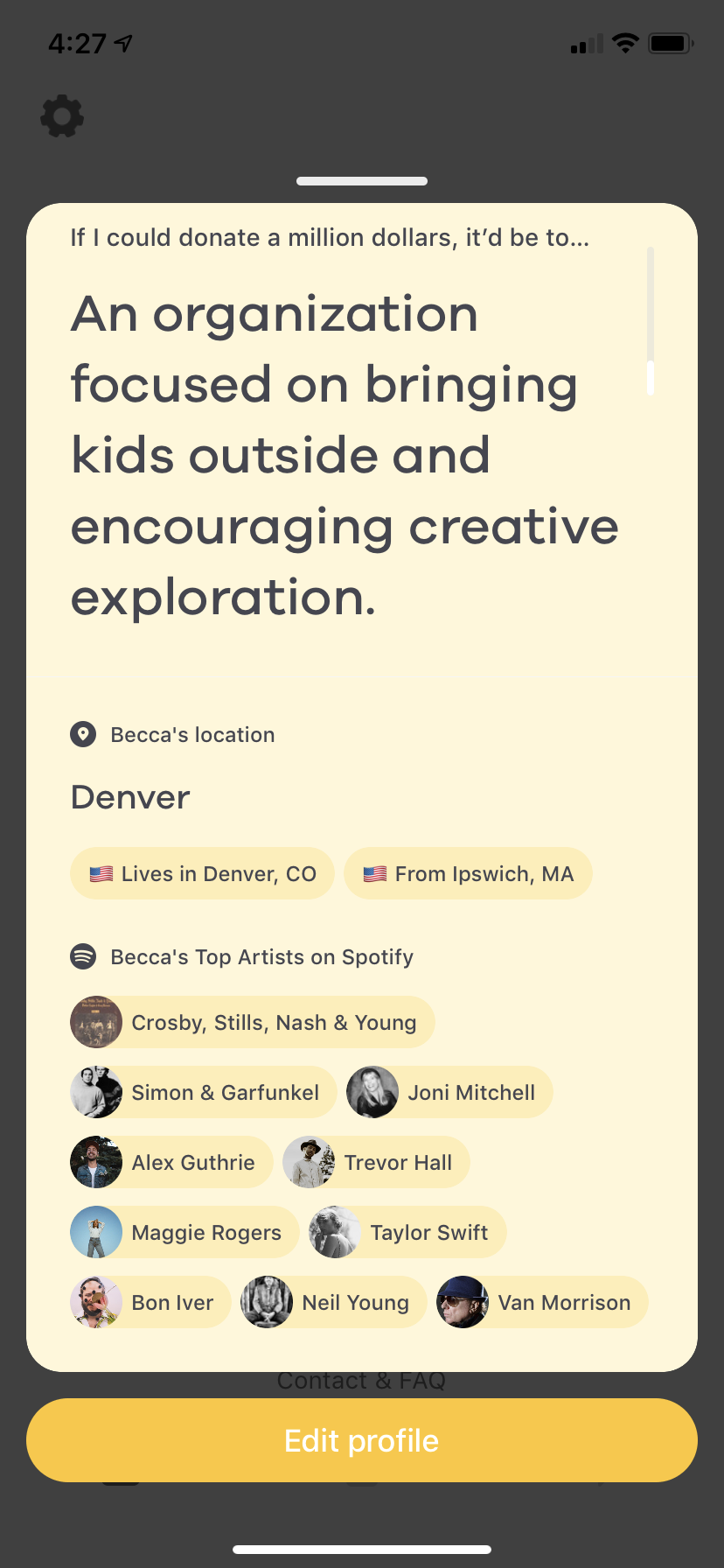I’m Married and I’m Dating Again
I’m dating again. And you’re probably wondering why I’m choosing to share that. If you know me—or attended my wedding—you’re probably feeling a bit alarmed. Yes, I’m happily married. And no, I won’t be part of the next Ashley Madison expose. This time, I’m swiping for friends.
It’s lonely in the middle of a pandemic. I just moved to a new city. My husband is an introvert. I work remotely—and for myself. And I’m hesitant to exhaust the few local friends I do have with the amount of social energy I need each day.
As a society, we’re facing threats on many sides. But loneliness seems to affect people of all ages—from preschoolers to the elderly. Even before COVID-19 was designated a pandemic and sent us into spirals of isolation, a January 2020 study named loneliness an epidemic in the U.S., revealing that more than three in five adults report feeling lonely, a 13 percent rise in loneliness in the past two years.
So when my husband and I packed up our one-bedroom apartment in San Francisco this summer and moved to Denver, I was terrified. We left behind a decade worth of connections and friends. And we’re not talking about just any decade. My San Francisco friendships were born out of the emotional rollercoaster that is mid-20s transitions: breakups, quitting jobs, new homes, engagements, new babies. We left behind the place where we met, fell in love, and started our married life together. We were ready for Denver. But all of the thrills that make us sound old—a house with a yard, a guest room, and a quiet neighborhood full of young families—came at the cost of our old life.
Searching for Myself
So when I signed on to Bumble BFF—Bumble’s friend-dating channel—and set up a profile, I thought long and hard about who I wanted to attract. I’m active, but not a workout junky. I’m low maintenance, but love a good pedicure and glass of wine. And I’m married and love making friends with other couples, but I’m also trying to live my own life.
I settled on describing myself as some combination of outdoorsy, ambitious entrepreneur, and laid-back athlete. I added and deleted profile photos, reordering them so I appeared to love my husband but did not need him to join me in every mountaintop selfie. And I wrote three careful sentences in hopes of attracting my perfect match.
Exhibit A: I was looking for a type A, beer drinking, occasional endurance athlete with outdoor experience and the structure of a demanding job.
I was searching for myself.
I didn’t swipe for the first few days. I toggled between judging myself for being on the app, judging others, and then accepting the reality that if I was here, others like me must be, too.
A September 2019 study revealed that Tinder—the most popular dating app in the U.S.—reached 7.86 million users, while Bumble came in second at 5.03 million users. I won’t try to guess how many connections that equates to, but I think it’s safe to say that dating apps are mainstream, right?
Unconscious Bias
If you’ve ever perused a dating app, you know that first photos matter. Before I even read what people have to say, I see their photo. Too much makeup? No thanks. High heels? Not my style. Face piercings? Too edgy. Bunny ears or an animal nose superimposed across the selfie? Dealbreaker. But what about all of the other people who don’t look like me. Those with different body types, styles, or career paths? I found myself swiping left—the Bumble equivalent of rejecting someone—on them, too.
University of California San Francisco’s Office of Diversity and Outreach describes unconscious bias as: “Social stereotypes about certain groups of people that individuals form outside their own conscious awareness. Everyone holds unconscious beliefs about various social and identity groups, and these biases stem from one’s tendency to organize social worlds by categorizing.
Unconscious bias is far more prevalent than conscious prejudice and often incompatible with one’s conscious values. Certain scenarios can activate unconscious attitudes and beliefs. For example, biases may be more prevalent when multi-tasking or working under time pressure.”
As I began to match with a few girls, I started noticing patterns. The girls who messaged me were usually excited about my love of hiking, running, and finding swimming spots. They also wanted to know more about my job. They were all athletic looking, dressed in popular outdoor brands, and 99 percent white.
It’s impossible to isolate the source of the homogeny. Was I still selecting disproportionate numbers of people who look like me? Were my filters and settings geared toward a certain demographic? Is Denver—and Colorado—just not very diverse? The answer to all of these questions is likely yes, and that’s where I get stuck. It would be simple to write off unconscious bias as an involuntary, unintentional effect of my late night scrolling. It would be simple to claim that my matches don’t reflect my real life views. But that’s not good enough.
The internet is real life. And now more than ever, we experience our lives through computer and phone screens. So my actions on Bumble need to reflect my views. The way I engage with strangers online should be no different from how I used to connect with a new friend at a co-working space or cocktail party. I have not solved this challenge for myself or anyone else, but I am clear that it’s an intention worth exploring. There is incredible value in meeting people who think differently or have varied life experiences. To start, I’m going to stop aimlessly scrolling and instead consider the impact of each decision I make, online or in person.
Making the First Move
I’ve probably swiped right on 50 people, have matched with 18, messaged with 12, and met up with 2. Is this what dating is like? It’s exhausting.
I noticed I often second guess myself, matching with someone and then never messaging them. Or I’m having a busy week so decide I don’t have time to make new friends. It’s a rollercoaster of emotions, the app is addictive, and I find myself idly swiping before I fall asleep, only to wake up less interested in the person or the prospect of friend-making than I was the night before. But I noticed that even with my matches and fun back and forth messages, no one suggested a meetup. I got tired of waiting to learn the Bumble etiquette and decided to put myself out there. And who better to approach than another Becca?
In her profile, Becca says she loves rocks, hiking, and backcountry skiing. Her photos are glowing mountaintop selfies and she promises to be an enthusiastic hype woman for her friends. She’s looking for adventure friends, drinks socially, and lives in Golden, Colorado, a town Charlie and I have often considered for our next home. But Becca won me over with a single line. The app asks, “When do you feel most empowered?” And she replies: “Taking off my shoes/boots post hike, post climb, post ski.” My kind of person.
I asked Becca on a hiking date followed by drinks and a river plunge, activities she and I both loved. I would never meet a strange man at a trailhead for a first date. But meeting Becca at three in the afternoon felt safe, and maybe I’ll always be willing to take risks for the sake of friendship and outdoor activities.
First Date: Becca x Becca
I must have changed my outfit twice, aware that I wanted to look rugged, yet pulled together, prepared, yet casual. I brought a lot of water, some wine in a jar, and sandals for that post-hike moment (when I was sure we would bond over a shared love of taking shoes off!)
We met at a trailhead.
Then we two Beccas proceeded to chat our way through five miles of hiking, covering everything from her recent breakup to my business goals. We checked off the simple topics: like families and grad school and rent, and then we went deep, sharing advice from therapists, anxieties about the future, and our current political fears. We exchanged favorite books, love stories, and morning routines. And we gave each other advice. Every part of our adventure was so much better than a date with a man. I realized that without the romantic pretense, or the need to choose “just one” person to date, friend dating feels so simple. I wasn’t evaluating her as a life partner or jumping six steps ahead to the names of our future children. I wasn’t even worried about whether she would call me or rely on me to make the next move. I was firmly in the moment, enjoying the trail, the conversation, and the beginnings of true friendship.
When Becca mentioned that she was hanging out with another “Bumble girl” that coming weekend, I didn't even feel jealous. Ok, maybe a little.
After another date and plans for more hikes, I’m clear that Becca is a person I want in my life. She’s single, a few years younger, works in an entirely different world, and approaches life with different priorities. But we both love to hike. She’s open-hearted and thoughtful, observant and a good listener. And she wants to be my friend, too.
I recently deleted Bumble again, maybe not forever, but for now. Because while having a whole list of friends to call and text filled me with joy in San Francisco in my twenties, one great friendship feels special right now. And maybe that’s one advantage to starting over in a new place. The chance to put intention behind each new connection.
For now I’m clear on one thing. Kicking off my shoes at the end of a long hike sure feels sweeter with someone to share it with.




